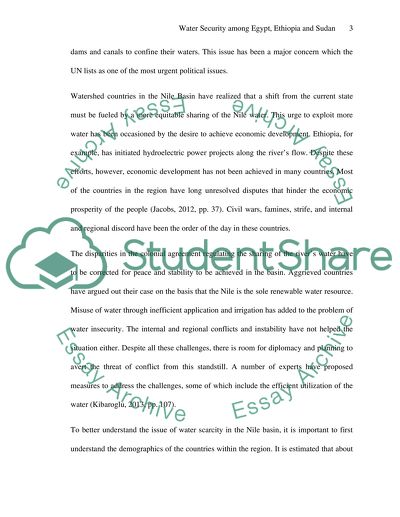Cite this document
(Water Security among Egypt, Ethiopia and Sudan Essay Example | Topics and Well Written Essays - 1500 words, n.d.)
Water Security among Egypt, Ethiopia and Sudan Essay Example | Topics and Well Written Essays - 1500 words. https://studentshare.org/environmental-studies/1688245-water-security-among-egypt-ethiopia-and-sudan-subject-is-international-relation
Water Security among Egypt, Ethiopia and Sudan Essay Example | Topics and Well Written Essays - 1500 words. https://studentshare.org/environmental-studies/1688245-water-security-among-egypt-ethiopia-and-sudan-subject-is-international-relation
(Water Security Among Egypt, Ethiopia and Sudan Essay Example | Topics and Well Written Essays - 1500 Words)
Water Security Among Egypt, Ethiopia and Sudan Essay Example | Topics and Well Written Essays - 1500 Words. https://studentshare.org/environmental-studies/1688245-water-security-among-egypt-ethiopia-and-sudan-subject-is-international-relation.
Water Security Among Egypt, Ethiopia and Sudan Essay Example | Topics and Well Written Essays - 1500 Words. https://studentshare.org/environmental-studies/1688245-water-security-among-egypt-ethiopia-and-sudan-subject-is-international-relation.
“Water Security Among Egypt, Ethiopia and Sudan Essay Example | Topics and Well Written Essays - 1500 Words”. https://studentshare.org/environmental-studies/1688245-water-security-among-egypt-ethiopia-and-sudan-subject-is-international-relation.


